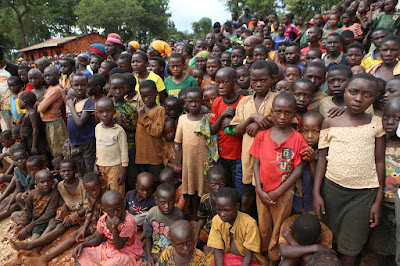New 4,729 refugees enters in Tanzania
By
Mnaku Mbani
A
total of 4,729 new refugees have entered in Tanzania during the period from October 31 to November 06, 2016,tThe International Organisation
for Immigration (IOM) has reported.
Among
of the refugees entered 2,360 were males and 2,369 females. They composed of
4,527 Burundians and 202 Congolese.
IOM
say in its recent report that all received refugees were transported from the
entry points in Kasulu, Kibondo, and Ngara districts to Nduta and Nyarugusu
camps, and to Lumasi and Manyovo transit centers.
Generally,
IOM say it has provided transportation support to 14,426 persons, in October
2016.
“IOM’s
fit-to-travel medical screening revealed that the top five medical conditions
among the transported persons were: malaria, conjunctivitis, upper respiratory
tract infections (URTI), skin infections, and diarrhea,” says a report.
“IOM has been providing safe and dignified
transportation to persons fleeing the crisis from various entry points along
the border between Tanzania and Burundi, mainly in Kasulu, Kibondo, and Ngara
districts.”
The report shows that 4,527 Burundians were
transported to Nduta camp, and to Manyovo and Lumasi transit centers, the 202
Congolese were transported to Nyarugusu camp, in Kasulu district.
During the reported period, the fit-to-travel
medical screenings carried out by the IOM medical team revealed that 228 medical
cases required medical care.
The top five medical conditions were malaria,
conjunctivitis, upper respiratory tract infections (URTI), skin infections, and
diarrhoea.
Fifteen cases were referred to the Médecins Sans
Frontières (MSF) hospital in Nduta camp. These cases included three cases of
epilepsy, two cases of tuberculosis (known cases), two cases of malnutrition,
two cases of mental disorder (known cases), one case of sickle cell disease,
one case of liver cirrhosis, one case of hernia, one case of dislocated joint,
and two cases of complicated malaria.
IOM say fourteen cases were referred to the
Tanzanian Red Cross (TRC) clinic in Lumasi transit center.
These cases included one case of tuberculosis (know
case), two cases of diabetes, one case of gender based violence, one case of
incomplete abortion, two cases of HIV (known cases), one case of epilepsy, one
case of malnutrition, one case of complicated pregnancy, one case of
complicated malaria, two cases of sickle cell disease, and one case of pelvic
inflammatory disease.
One case of incomplete abortion and one case of
wound were referred to the TRC hospital in Nyarugusu camp. Additionally, there
were 106 pregnant women at different gestational age who require ante-natal,
intra-natal and post-natal care among the new arrivals.


Maoni
Chapisha Maoni